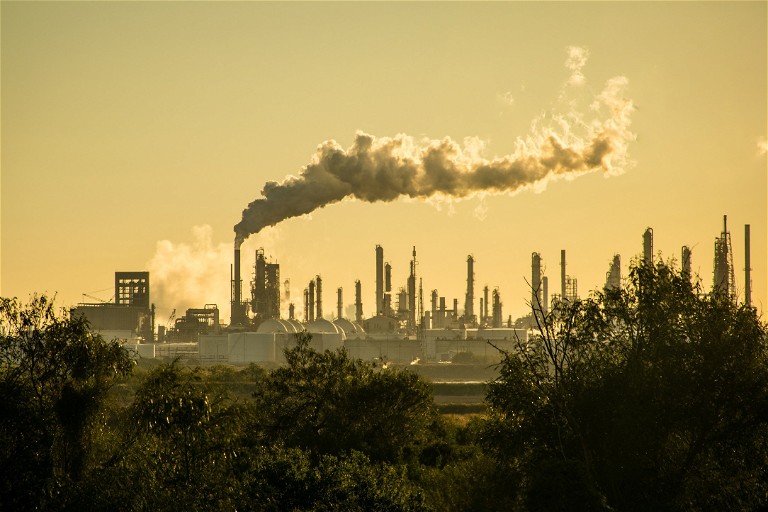Feature
Could climate change along with pandemics equal a recipe for disaster?
Betsy Goodfellow from Pharmafocus considers the effects of climate change and how this could impact future pandemics

With the World Health Organization (WHO) officially declaring that COVID-19 is no longer a public health emergency on 5 May 2023, many would consider this a time of relief and celebration – however, some experts believe that the world is not in as strong a position as we may like to believe.1 Although it is positive news that the COVID-19 pandemic is no longer considered an emergency, a threat remains from both COVID-19 and other pandemics and viruses that may emerge.
The WHO’s emergencies director, Michael Ryan, commented: “The battle is not over. We still have weaknesses... [that] ...will be exposed by this virus or another virus.”2
Even more concerning is the fact that the Earth’s changing climate may make new pandemics a bigger and more immediate threat. Since the 1800s the Earth has warmed by 1.1°C, meaning it is unlikely that we will meet the Paris Agreement target to keep global temperature from exceeding 1.5°C above pre-industrial levels.3 This target was set as an upper limit to avoid the worst impacts of climate change. 3
One of these impacts would be a negative effect on health, especially regarding infectious diseases. Climate change has already had an impact in this area, making it easier for some infectious diseases to spread, including Lyme disease, waterborne diseases such as typhoid fever or cholera and mosquito-borne diseases like malaria and dengue fever.4
There is also a connection between rising levels of infectious diseases and climate change through habitat loss. The agriculture industry requires vast amounts of land to grow crops and raise livestock, which decreases the available areas for animal habitats and also means fewer food sources, causing animals to migrate to areas already occupied by humans. 4
Many diseases are transferred zoonotically (from animals to humans) through both wild and domesticated animals that can host harmful pathogens.4 Living in such close proximity to each other and other species provides an easy breeding ground for countless infectious diseases. 4
This becomes especially problematic due to the frequency and accessibility of long-distance travel, allowing what may have once been a localised outbreak to become a major health emergency like the COVID-19 pandemic.
Air pollution is another major contributor to climate change that has a detrimental impact on health. According to the WHO, there is significant evidence that indicates a strong link between breathing polluted air and poor respiratory and cardiovascular health. There is also some evidence that breathing poor quality air can lead to a myriad of health conditions including cognitive development, mental health issues, adverse pregnancy outcomes, pneumonia and COVID-19.5 It is well known that people with respiratory and cardiovascular health conditions, among others, are more vulnerable to COVID-19, including those with long-term lung or heart conditions. 6
Climate change not only raises the risk of another ‒ potentially worse ‒ pandemic, but also increasing the number of people who would be at a heightened risk from another respiratory virus if the next pandemic were to take a similar form to COVID-19.

What can be done to prevent the impact of climate change from triggering or worsening future pandemics?
The UN recommends ten steps individuals can take to limit their impact on climate change:7
- Saving energy at home by lowering heating and cooling systems, switching to LED light bulbs and energy efficient devices, washing laundry in cold water and hanging it up to dry instead of using a tumble dryer. It also suggests investing in your home’s energy efficiency7
- Walking, cycling or taking public transport instead of driving to reduce your greenhouse gas (GHG) emissions7
- Eating more vegetables and plant-based foods, and less meat and dairy – this can significantly lower GHG emissions and requires less energy, land and water7
- Considering travel choices carefully, by taking fewer flights, meeting virtually or avoiding long-distance trips7
- Being conscious of food waste, as this also wastes the resources and energy used to produce it. Reducing food waste also reduces the impacts of methane emissions from rotting food7
- Reducing, reusing, repairing and recycling wherever you can, from electronics to clothes7
- Changing energy sources to renewable where possible7
- Switching to electric when to buying a car7
- Choosing to support companies that are ecoconscious and spending money responsibly with these companies7
- Speaking up and encourage others to take action.7
No one individual can stop climate change and its subsequent health risks, but following this advice will make a difference. Major change is needed on an international level to combat this, and the Intergovernmental Panel on Climate Change (IPCC) has recently released a report outlining the steps it plans to take.8These steps include prioritising ‘climate resilient development’, which includes ensuring access to clean energy and technology and improving air quality, which in turn improves health, among other goals.8This report acknowledges that the impacts of climate change have become ‘increasingly dangerous [for] nature and people in every region of the world’. 8
Climate change is recognised as having a significant impact on human health and, if left unmanaged, will trigger further pandemics that potentially could have a more devastating impact than the COVID-19 pandemic. However, there are some simple steps individuals can take to reduce their impact while also campaigning for wider change from government.
References: